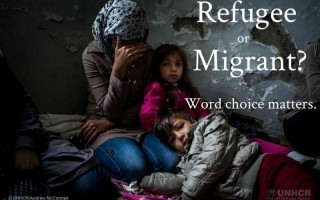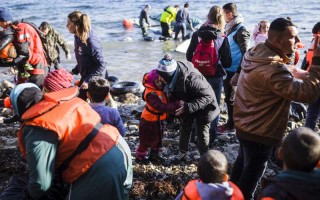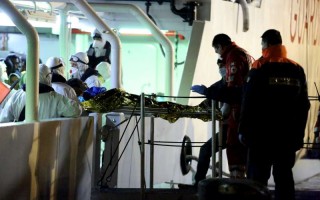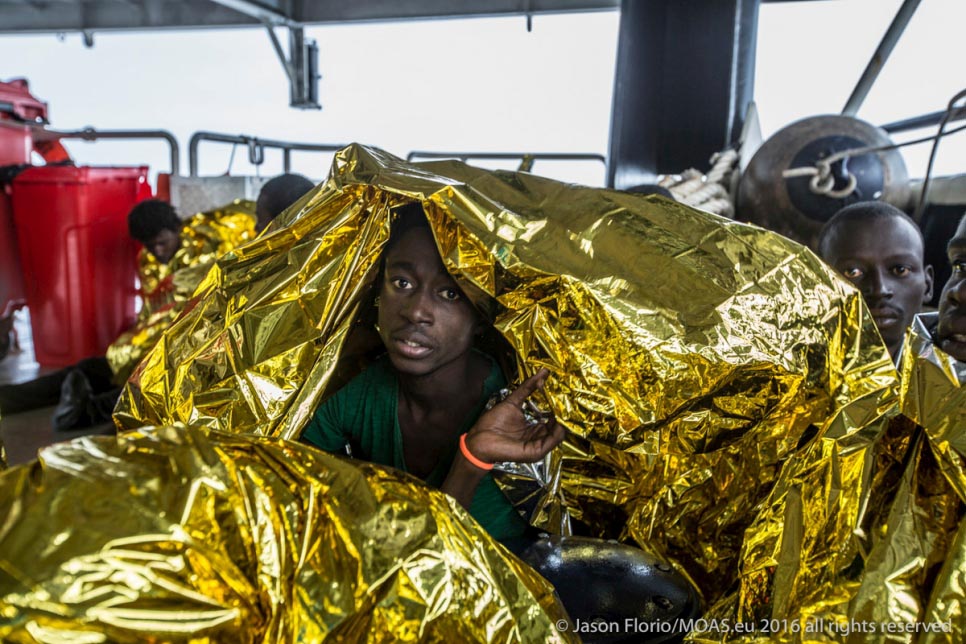
A young man is wrapped in a foil blanket to prevent hypothermia, after being rescued from an inflatable rubber dinghy off the coast of Malta, in November 2016. © Jason Florio/MOAS
The UN Refugee Agency is appealing for US$421 million in funding to provide alternatives to a growing number of refugees making dangerous journeys to Europe.
PORTO EMPEDOCLE, Italy – Fifteen-year-old Omar is among a growing number of Yemenis caught up in a deadly conflict at home, who have no option but to run for their lives. But when he set out alone on an epic journey to find safety in Europe, his real nightmare began.
After a seven-day voyage over the Red Sea to Sudan, he was robbed of the cash his family had collected to pay for his journey and thrown in jail. Freed after a few days, he spent the next three weeks crossing the Sahara Desert to Libya.
“It was a nightmare on earth, no food and even worse, no water for days,” he says. “When I arrived in Libya I was stranded in detention as I had no money to continue the trip.”
Just last week he resumed his perilous journey, cramming on to a smuggler’s’ boat to cross the open Mediterranean. After running into difficulties, he was rescued by and brought to Porto Empedocle on the southern coast of Sicily.
“It was a nightmare on earth, no food and even worse, no water for days.”
In an effort to provide meaningful alternatives to a growing number of refugees and others like Omar making increasingly dangerous journeys to Europe, UNHCR, the UN Refugee Agency, is appealing for US$421.2 million.
The number of refugees and migrants arriving in Europe from Africa through Libya is rising and, with it, the risks they face crossing the Sahara Desert and the Mediterranean Sea. So far this year, 2,360 refugees and migrants died or went missing in the Mediterranean, many others are believed to have died trying to cross into Libya.
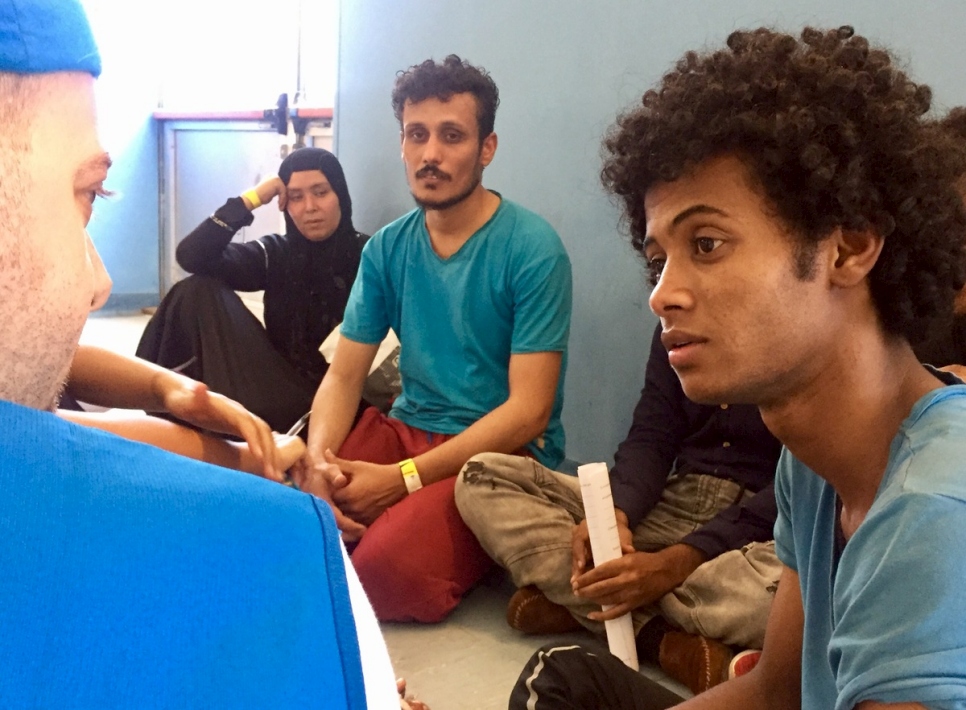
“Stories like Omar’s bring home to all of us the importance of international cooperation to ensure the protection and humane treatment of people at all points along the routes,” said Volker Türk, UNHCR’s Assistant High Commissioner for Protection.
“If the complexities of the situation are not addressed together in a coherent, joined-up way, we will only ever succeed in diverting problems onto others, creating space for smuggling and trafficking networks to thrive, and worsening the risks faced by refugees who are fleeing for their lives.”
To deal with complex population movements involving shifting routes, UNHCR is proposing a comprehensive strategy with interventions at three different points: in the countries of origin and transit in sub-Saharan Africa, in North Africa, and in the destination countries in Europe.
“The movement of refugees and migrants … is taking a devastating toll on human life.”
In sub-Saharan African countries, UNHCR aims to secure access to asylum, provide adequate reception services, strengthen protection space and deliver effective protection services and solutions for those in need of international protection. This will include capacity-building activities, raising awareness of the risks of travel towards Libya, improving communication with members of communities likely to undertake such journeys, as well as supporting law enforcement mechanisms for addressing human trafficking.
In North Africa, UNHCR will work to improve access to asylum, raise awareness about the dangers of irregular migration and work towards enhancing the overall protection space, including through alternatives to detention for refugees and asylum seekers.
UNHCR will provide targeted training support to coast guard services, ensure humane treatment and provision of humanitarian assistance to those rescued or intercepted at sea, and facilitate early identification, including at disembarkation points, of those with protection needs, for timely provision of services and solutions.
In Europe, UNHCR will continue supporting, complementing and building existing government capacities to ensure effective and safe access to asylum, protection services and solutions for people of concern, with particular attention to those with specific needs and vulnerabilities.
UNHCR’s supplementary appeal presents requirements amounting to US$421.2 million, including US$22.6 additional requirements for countries in West Africa and for Morocco.
It builds upon and incorporates earlier appeals such as the 2017 Regional Refugee and Migrant Response Plan for Europe, and requirements related to refugees in Libya worth US$62.4 million, presented in the May 2017 appeal for Libya. It also complements activities implemented by other organizations such as IOM for migrants using the same route.



